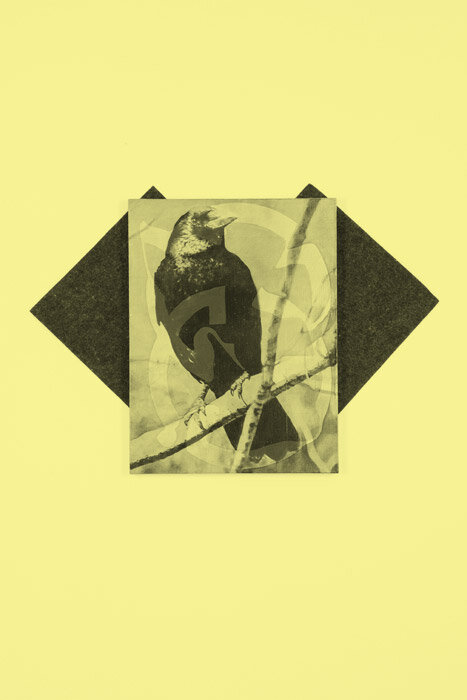#70 Benjamin Brett & Stephen Draycott, Liminal
2 - 21 October
Benjamin Brett & Stephen Draycott were born in Norwich and Margate. They both graduated from the Norwich University College of the Arts in 2005 and 2009 respectively. Brett & Draycott live and work in Norwich and London.
A conversation between Samuel Jeffery, Benjamin Brett & Stephen Draycott prior to the 1st of October
Samuel Jeffery: On the occasion of a two man show its seems appropriate to start the conversation with this in mind. Typically two man shows are designed to project a dialogue between two disparate practices. Liminal however feels like more of a collaboration, a single energy even.
Benjamin Brett: This feels somewhat inevitable as the two practices become inextricably bound in the process. The title Liminal seems suitably apt, referring to a transitional space that exists between two defined states of being. It feels like an exciting new dialogue is created in this territory.
Stephen Draycott: Yeah
SJ: In pagan belief Liminal is used to describe a generative and affirmative moment. As I understand, something mythical and extraordinary happens that can only happen in the Liminal space, something that would slip through a recognised network of classifications. Is this something that you are interested in?
BB: I am particularly interested in this notion of something that is tricky to be pinned down. Maybe the nature of a joint show, like this one, raises this question. An audience may struggle to disclose meaning given the lack of distinction of authorship.
SD: In folklore, Liminal was seen as a place where an individual could defy impossibility. For instance, one was only able to slay a giant if it had one leg on the land and the other in the sea. Approaching our collaboration with the idea that the meeting of our two artistic practices would result in something that could enlighten us both, we decided not to actively collude. We wanted any dialogue formed between our works to be unconscious. We viewed this dialogue as a third party, something to be fed and fuelled slowly until it became the basis of the show. An atmosphere, aesthetic as new and as unique to us as it would be for the impending audience. This was why our press release became virtually non-existent, it would have disclosed a preconceived idea of a show that we simply did not want to know until it was finalised.
SJ: During your install you decided to paint the foyer floor to match the gallery floor, change the gallery lighting and take the swing doors off. Why did you do this?
BB: The gallery lighting needed changing for quite some time and is a long term solution. The foyer and outside lighting was an intuitive response to other aesthetic considerations.
SD: It was the nature of the space. Dimensions, for which in my mind seemed to reek of domesticity, reminiscent of a scout hut or garden shed. I wanted to open it up, turn it clinical. The 'I' beams of the building played into this nicely, I utilised their structural attributes to inject an industrially miniaturised art warehouse space. It was something that I hoped would counteract this provincial anxiety.
SJ: On reading the text in Steve's edition I came across the term, 'The dawn of artificial preciousness', a term that implies a great sense of profoundness. I am interested in what this might mean in relation to the attitude of the show or of you as artists.
SD: The Edition is loosely based on trend forecasting booklets in which fashion designers and clothing outlets pay hundred of pounds to obtain. These booklets usually consist of colour swatches, collages and written blurbs. It was the blurbs that made me excited. They are poetic. They try to encapsulate a landscape and atmosphere of a forthcoming season, an endeavour to forecast what people's feelings and attitudes will entail visually in coming months. I just wanted to make an artist's version cus' I felt parallels with this in my own experience as an Artist among Artists. These words quoted by you are just a result of that, intended for other artists to provoke profound thought. I guess I've never thought to take them any further than that.




